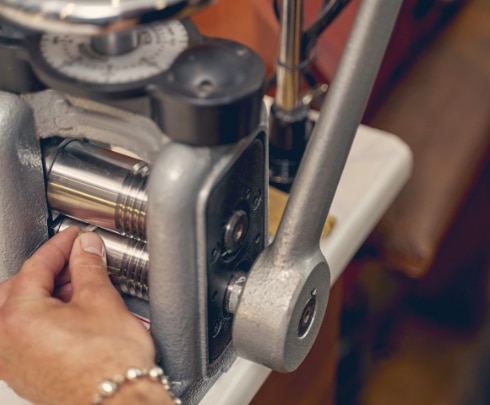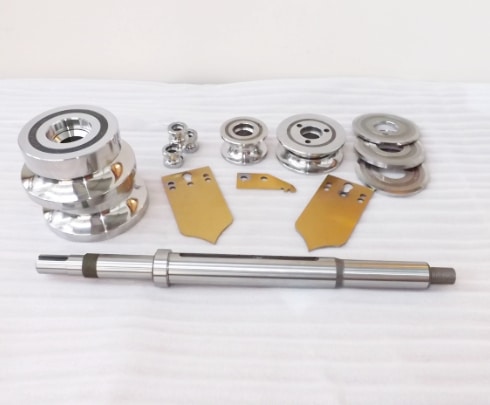
Rolling mills can be either self-contained, individual units, or can be attached to other machines such as a shearing machine. Ranging from small to large units, rolling mills are commonly equipped with several rollers that are driven by electric motors or hydraulic cylinders. Essential to the manufacturing of sheet metal, rolling mills often undergo daily stress as they are run for long hours, seven days of the week. Mills are exposed to extreme temperatures and harsh metalworking processes, which can result in wear and tear on your mill.
Bellcliffe Engineering are specialists in rolling processes, finding custom solutions to your problems. We have in-house design capabilities, or can work in collaboration with your designs, to create tooling and roll forming components which can enhance your rolling operations. Moreover, we offer mill servicing to keep your machine in top condition, minimising downtime and increasing the efficiency and end results of your machinery.
Capabilities & Technical Specifications
Bellcliffe Engineering offers free site surveys in order to determine the best course for your machinery and components, and how to fulfil your requirements. We have 100 years of combined experience to draw upon whilst making recommendations on any parts, components, or servicing you need, so you can be sure your machinery is in safe hands. We work with a range of materials, giving us great flexibility when designing high quality tooling or components.
Bellcliffe Engineering can provide these services world wide.
Our machinery and components are built to your exact specifications and requirements - speak to a member of our team to discuss technical specifications.

Applications
Our services are available to a range of sectors who benefit from roll forming services, including, but not limited to:
Got A Question? Get In Touch
FAQs
A rolling mill is a machine used to flatten a hot or cold sheet of metal into a different shape. Rolling mills are most often used in the steel industry, but are also used in military and aerospace sectors, amongst others.
A rolling mill works by pushing a metal sheet between one or more pairs of rolls in order to shape it. The rolls are made of a non-ferrous material to prevent dents from forming in the metal as it flattens.
Rolling mills can be adjusted to give specific types of flatness or thickness to make different products. The more rolling passes, the metal can take on a thinner or more complex shape.